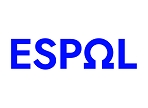FORMATIONS |
Fiche détaillée d'un cours
 | Institutions of Global Economic Governance | ||
2023-2024 | FrESPOL European School of Political and Social Sciences
(
ESPOL
)
| ||
Code Cours : | 2324-ESPOL-DIV-EN-T004 | ||
| Niveau | Année de formation | Période | Langue d'enseignement |
|---|---|---|---|
| S2 | FrAnglais |
| Professeur(s) responsable(s) | Alessandra Romani |
|---|---|
| Intervenant(s) | Pas d'autre intervenant |
- Ce cours apparaît dans les formations suivantes :
- ESPOL - Programme in European Politics - S2 - 3 ECTS
ESPOL - Licence 2 de Relations Internationales - S4 - 3 ECTS
Pré requis
No prior knowledge is required.
Objectifs du cours
The objectives of the course include: (i) introducing the structure and practices of key institutions in global economic governance (such as the International Monetary Fund, the World Bank, and the World Trade Organization); (ii) giving an overview of major theoretical approaches to the study of international economic institutions--in other words, how they are created, how they interact, and how they evolve; and (iii) providing a comprehensive understanding of current trends and challenges in global economic governance.
Contenu du cours
This course offers an introduction to key concepts, theories, and debates on global economic governance. It aims to provide students with a comprehensive understanding of what shapes the creation, evolution, and performance of institutions in today's economic system. The course starts with a review of major theories on institutional design and change. It then considers the process of institutional proliferation that has characterized the international financial system over the past five decades, transforming it into a multitiered network of bilateral, regional, and international institutions; this, with a view to exploring the impact that such institutional complexity may have on the effectiveness of the system. The course then moves on to consider issues of power and hierarchy, as it shows how different types of distributional conflicts affect governance outcomes. Finally, the course presents the various mechanisms through which policies and institutions can spread, and some methods for modeling them.
Modalités d'enseignement
Organisation du cours
This course consists of two-hour lectures and takes a mixed approach: it is a combination of frontal lectures and in-class discussions.
Course requirements are: (i) Class participation: students are expected to read assigned articles before each lecture and to participate in class discussions knowledgeably (20 %). (ii) Comments on readings: before each lecture, students are expected to submit one substantive comment and one motivated question on assigned articles. These talking points should not be mere summaries, but critical assessments of the articles (in other words, they should focus on strengths and weaknesses of the readings); they are meant to provide students with material for discussion in class (45 %). (iii) Presentations: students are expected to present one article among those assigned in the syllabus; presentations will be individual or group-based depending on the number of students (35 %).
Lectures will take place in the following dates: 23.01.2024, from 16 to 18; 24.01.2024, from 8 to 10; 06.02.2024, from 16 to 18; 07.02.2024, from 8 to 10; 20.02.2024, from 16 to 18; 21.02.2024, from 8 to 10; 12.03.2024, from 16 to 18; 13.03.2024, from 8 to 10; 20.03.2024, from 8 to 10.
Méthodes pédagogiques
Évaluation
Contrôle continu : coeff. 100
Bibliographie
There is no required textbook for this course. Lectures are based on articles that students are expected to read before class.
Ressources internet
Lecture slides and required readings can be found on iCampus.
* Informations non contractuelles et pouvant être soumises à modification


















































































